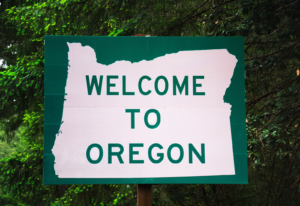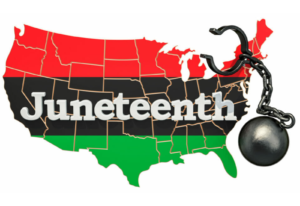Yesterday proved to be a wild day, featuring Jeff Sessions single-handedly demolishing the federal government’s former cannabis enforcement framework. Now that 24 hours have passed since the news came out, we have had a chance to refine our analysis of the Department of Justice’s move.
Reactions in the media have ranged from treating the Sessions announcement as nothing more than an attempt to frighten the cannabis industry to claiming that it was the first step in an organized crackdown of the marijuana industry that could affect cannabis businesses and users. For now, we must treat both of those possibilities as plausible futures. Trump and Sessions may be gearing up for a wave of arrests, prosecutions, and asset forfeitures related to marijuana businesses —or Sessions may just be trying to put a fright into marijuana business owners and investors. Only time will tell.
The “Sessions Memo” was short on specifics. It didn’t contain an outright directive ordering U.S. Attorneys to go after marijuana businesses. Instead, it simply withdrew the earlier marijuana-specific guidance memoranda and directed U.S. attorneys to treat marijuana sales like any other federal crime. The withdrawn memos include, among others, the August 2013 Cole Memo that has underpinned federal marijuana policy for the past four and a half years; the February 2014 Cole Memo that extended low enforcement priority status to apply to banking activities; and the 2014 Wilkinson Memo that was a sort of Cole Memo for tribal lands.
So now, U.S. attorneys have full discretion to determine to what extent they can/should enforce federal law in the context of marijuana crimes in states with legalization and medicalization. Sessions referred to the principles of enforcement in the U.S. Attorneys’ Manual, but that document reinforces the level of discretion and authority that each U.S. attorney has already. The Cole Memo was useful in providing a consistent nationwide federal policy. Under the new Sessions Memo, we are back to the days of having potentially 93 different enforcement policies — one for each U.S. Attorney. Here’s what we know already about a selection of the U.S. Attorneys that will be making these decisions:
Robert Troyer, District of Colorado: Bob Troyer issued a statement yesterday saying that his office “has already been guided by [the U.S. Attorneys’ Manual’s] principles in marijuana prosecutions.” This statement implies that Troyer doesn’t see any difference in Colorado between prior policy and today’s policy.
Annette Hayes, Western District of Washington: Annette Hayes, who has served as either the Acting U.S. Attorney or an interim U.S. Attorney since October 1, 2014, also put out at statement, but it was significantly denser than Troyer’s statement. It wasn’t overtly negative, but it also wasn’t as direct as Troyer’s regarding enforcement policies remaining the same.
Joseph Harrington, Eastern District of Washington: Joseph Harrington is another Acting U.S. Attorney that is a holdover from the Obama administration. Harrington did not issue any specific statement in response to the Sessions Memo. When media outlets asked Harrington about his position, he responded by referring media requests to the Department of Justice in Washington D.C. Harrington, for now, is something of a black box on this.
Billy Williams, District of Oregon: Billy Williams was also appointed during the Obama administration, but Trump did nominate him to stay on as U.S. Attorney in December. Williams prosecuted two Oregonians for federal cannabis crimes in 2016, but there were Cole Memo priorities implicated, including sales to minors. More recently, Williams invited Sessions to visit Oregon to discuss Oregon’s cannabis market in September 2017. In response to the Sessions Memo, Williams issued a press release saying: “We will continue working with our federal, state, local and tribal law enforcement partners to pursue shared public safety objectives, with an emphasis on stemming the overproduction of marijuana and the diversion of marijuana out of state, dismantling criminal organizations and thwarting violent crime in our communities.” Again, this statement doesn’t read too poorly, but it is sufficiently vague enough to still be worrisome.
California: California is a bit of a mess in all of this. Oregon and Colorado only have one U.S. Attorney each. Washington has two, but they are neatly separated into eastern Washington and western Washington, which often feel like two different states anyway. California, on the other hand, has four U.S. Districts. And none of those four has or will have a U.S. Attorney with more than two months on the job.
- Northern District: The U.S. Attorney for the Northern District of California, Brian Stretch, resigned yesterday to join a private firm. No replacement has been named.
- Central District: The Central District is a populous jurisdiction that includes Los Angeles, Riverside, San Bernadino, Ventura, Santa Barbara, and San Luis Obispo. Two days ago, Sessions appointed a new U.S. Attorney for the Central District, Nicola Hanna. Hanna doesn’t seem to have much written history regarding his views on marijuana, but the fact that Sessions picked him and specifically called him out for “taking on drug traffickers” isn’t the most positive sign.
- Eastern District: McGregor Scott, also a recently-named U.S. Attorney, has actually been a U.S. Attorney in the past, having prior experience in the Northern District of California. He did not earn positive marks from the cannabis community, as he did pursue aggressive marijuana prosecutions in the mid-2000s.
- Southern District: Finally, Adam Braverman was named U.S. Attorney for the Southern District of California a couple of months ago in November. He is most well-known for international cartel work as well as other types of organized crime. Braverman made a statement in support of the Sessions Memo, saying: “The Attorney General’s memorandum today returns trust and local control to federal prosecutors in each district when it comes to enforcing the Controlled Substances Act.”
If we are reading the tea leaves to see what is going to happen next (and they are indeed tea leaves), Colorado appears to be in the safest position, but California could turn into a real mess with different enforcement standards in different counties depending on which judicial district a business is in. Banking will be a major unknown for some time as well. FinCEN’s 2014 Guidance heavily referenced the Cole Memo, which is now rescinded. If FinCEN withdraws that guidance, what kind of ripple effect will it have on other bank regulators?
It also remains unclear how all of this policy will work out. Cory Gardner, a republican senator from Colorado, appeared furious when he responded to the initial announcement of the Sessions Memo (video below). He went so far as to threaten to hold up DOJ nominations, which would include those newly appointed California U.S. Attorneys. Sessions’s actions, as well as those of the U.S. Attorneys, are not yet set in stone. Ultimately, political pressure from Congress may still have an effect on the final outcome.

























